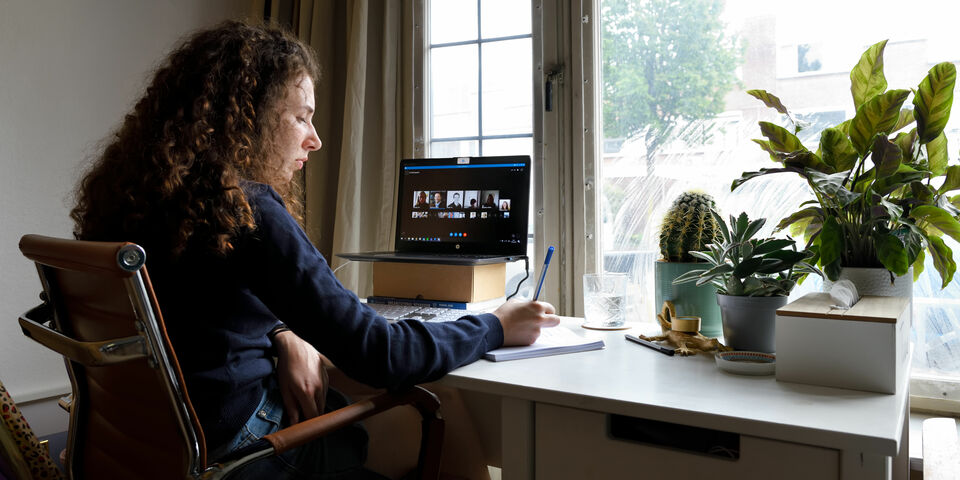Because of the skyrocketing number of coronavirus infections among 18 to 30-year-olds, on 3 January the Dutch government decided to not yet relax the measures in higher and vocational education. Students would then have more time to get a booster jab.
Remote learning will be the norm until at least Saturday 15 January. Just as before Christmas, students can go to their universities and colleges for exams and practical classes, and to visit the library. On 14 January the government will re-evaluate whether higher education institutions can open again.
Disappointment
The Dutch Student Union (LSVb) has called the extended lockdown ‘a heavy blow’. “The resilience of many young people has run out”, says chairperson Ama Boahene in a press release. She’s not particularly optimistic: “Many institutions will now decide to provide education fully online in the coming period. It’s impossible to constantly switch between physical and online education. For students that means they’ll be stuck at home again for the coming months.”
The Dutch National Students’ Association (ISO) also calls it “a tremendous disappointment for Dutch students”. According to chairperson Lisanne de Roos, a raft of research has shown that the mental impact of a lockdown is “enormous” for students, and that the quality of fully online education leaves a lot to be desired. “Despite this, the outgoing government seems to be ignoring all these signals and higher education is staying closed, with all the associated consequences.”
According to the students, the question should no longer be about whether education can open up again, but how.
Covid pass
Opinions on the future course of action are deeply divided. On Saturday afternoon there was a demonstration on Amsterdam’s Dam Square against the lockdown in higher education. Around a hundred people took part.
The pressure group ‘Students for Open Education’, co-initiator of the demonstration, is also fiercely opposed to the introduction of the compulsory Covid pass in higher education. A petition against this has currently received three thousand signatures.
Stricter measures
But there are also students who want to see stricter measures. In December, the concern among students regarding compulsory attendance at lectures and exams was growing: they feared that to prevent study delays students with coronavirus-like symptoms would also attend campus. Keeping a 1.5-metre distance is still not compulsory for practical classes, and students also don’t have to wear a facemask once they’re seated.
In Flanders higher education has not gone into lockdown, but Flemish universities have taken extra measures due to the spread of the Omicron variant. At KU Leuven university facemasks will be compulsory for all students from today, even when they are seated during lectures, in the library or when they’re taking a written exam. During oral exams students and lecturers have to wear a medical-grade FFP2 facemask. The universities of Antwerp and Ghent will even be making these facemasks compulsory for all exams. They have bought tens of thousands of them, and will soon be handing them out at the entrances of examination rooms.


Discussion